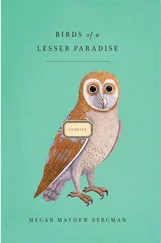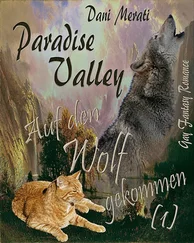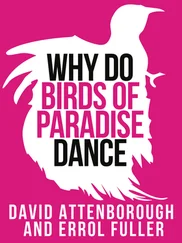There’s a noise behind him and Stanley turns to see Marco Braithwaite, another regular, halfway through the door. “Stan? You guys open today?”
Stanley gestures him in. “We haven’t restocked yet, but if you see something you need…” He swings his arm open; he feels careless, expansive. “Go for it.”
Marco salutes, heading for the near-empty cereal aisle. “I’ll leave the money up front, how ’bout.”
Light-headed, Stanley strolls down Vinegars/Oils/Pastas toward the office. He can hear voices: the low current is Nieves and the nervous, lighter clip is, apparently, the voice his sister has grown into. Their voices slip together easily. He’s never seen Nieves warm to someone so quickly before. Felice is awkward, as if she’s out of practice with conversation, but she keeps going — making up for lost time. What happened to her? He’s employed enough people on various sorts of margins to recognize the bitten-away cuticles, the haunted eyes. He feels another surge of irritation: she should go. He doesn’t need this: he’s got enough to worry about without more turmoil, wondering about whatever ruins his sister is running from or the next time she’ll vanish. When Stanley reaches the doorway, both women look up, startled. Then Nieves smiles. “Hi, babe.” She reaches up for his kiss.
Felice seems instantly diffident. “Hiya, Stan.”
The air feels high and tight in his chest, his lungs cinched like a drawstring. Felice. Here. A velvety black gecko appears on the wall behind the girls — it’s trickled out of some corner and now rests mid-wall, its tiny throat beating, its body pointed like a dart. Stanley looks back at the women and he realizes that Felice is watching him with some anxiety, as if awaiting a decision. Arms crossed, her right hand absently circles her left elbow — a small tic he’d almost forgotten. He smiles weakly. Annoyed with himself, his lack of will, he sits beside Nieves and tips his nose to her hair. Not yet. He closes his eyes.
FELICE AND EMERSON spend that night and the next on Stanley’s floor, and still he fails to ask them to leave. Then they discover the couch in the living room pulls out into a bed — Stanley mimes smacking himself in the head — he’d completely forgotten (though it was, in fact, the place he used to sleep before meeting Nieves). Nieves gives him a narrow look and smooths fresh sheets onto the hide-a-bed.
Emerson spends the next few days clearing the parking lot, sawing tree limbs, sweeping the cement patio, and swabbing the store. Then he and Noah go out in Noah’s pickup and return with flats of wind-resistant coleus and aloe, and plant a decorative border along the front of the store. Nieves walks Felice through wines and cheeses. They officially reopen on the third day after the hurricane, and right away customers flash through the entrance. Still, Stanley can’t stop watching Felice, uneasy about the way his sister and girlfriend have adopted each other. He can’t understand how they can have so much to talk about so quickly. One day while he’s in his office, the girls are restocking the cheese cave. Through the office wall he overhears Nieves mention her big family. Their voices are barely muffled. Nieves is estranged from most of her relatives, and is coolly off-handed about it — Stanley has heard her tirades against her tyrannical stepfather and humorless siblings, as well as her disaffection for the notion of “family.” He’s opening cartons of crackers and stacking them against the wall when he hears Felice begin describing her life to Nieves — her runaway life. Stanley drifts to a stop, his hands still pressed to the large carton, as he hears: “It was like a kind of a halfway house, I guess. The Green House. Lots of kids. Yeah, Emerson, too, sometimes… No, I claimed this crappy mattress in a back room… A couple years. I guess… pretty safe. Compared to, you know, anyplace.”
There is the creak of a hand truck, a sound of movement, something tumbles, a flutter of laughter. Then, “We really can’t — exactly — go back. You know? I mean, I was done anyway. But we got into, like, some pretty heavy — some trouble?… Yeah… I did. Some guys… Yeah… I don’t know… I guess I probably shouldn’t say too much.”
Nieves’s questions are just soft dabs of sound.
“Modeling, sort of… Yeah… No… It was dumb… Tattoos… Yeah! Not permanent… I know… Actually it sucked… You can’t hardly eat… Not that I…”
Just like that, filling in the abysmal silence, the missing past, as if such a thing could be done. He stares at the carton in his hands: Finnish Flatbread: 48 count. The yellow walls of his office, the wet stain beside the coffeepot, a mug filled with pens, curling photographs of friends waving from canoes, rappelling up sheer cliffs. On his desk, an announcement for underwater birthing class, a flier for a tai chi workshop, stating: Only this moment, right now, to see the possibilities in it or not. Everything is so ordinary, yet he feels as if he’s been teleported to another solar system.
Stanley lies awake that night replaying old fragments, bits of memories of Felice: her tidy bedroom with the translucent shell chimes; the poster above her bed— Christina’s World —the back of a girl’s wind-stirred hair, her oddly twisted recline in the field. Stanley recycles their last conversations: the way he was always trying to apologize for whatever was making Felice run away, then trying to make himself angry enough not to care. But that was Stanley’s big problem — his anger was insubstantial — it wisped away between his fingers when he tried to grasp it. He even tried to provoke fights with her: once he snapped, “You need a shrink!”
She’d asked, “Would that make you happy?” What a thing for a thirteen-year-old to say! How could he be angry with her when so often she didn’t even seem to be there.
Now Stanley cannot shake the sense that Felice and Emerson are recovering from something like a catastrophic illness. There’s a lingering frailty, a delicacy in their actions and voices, especially in the way they treat each other, with such tenderness and solicitude. Felice talks about Portland, about the route they’ll take, how much money they’ll need, the sort of work she might look for. But increasingly, Stanley notices, Emerson responds with less enthusiasm, in a kind of gentle, pro forma manner. Every morning, Emerson is the first up, the first to unfold the paper, which he combs, reading it all the way through, subsequently refolding it so it appears nearly undisturbed. Stanley has seen him retrieve the paper from the recycling bin later, on his break, and start rereading — his finger tracing the columns. Once, Stanley said something to Emerson about the president’s obsession with Iraqi oil fields and the boy looked at him a moment before saying, “Oh, right — what a mess, I know.”
End of conversation.
They work well together, Stanley will admit: this is something he understands — the language of communal work, how cooperation gives rise to the best kind of friendships. Stanley is impressed with Emerson’s capacity for labor, his endurance, and his ability to learn quickly — how to inventory, to build displays, to keep accounts. He doesn’t say much — especially not about himself, but to Stanley, this is a positive thing, refreshing even, after years of loquacious, sensitive young men, guys in touch with themselves, drummers, poets, and political activists — each brimming with feelings, insights, and opinions. Emerson is steady: a quality Stanley prizes. Emerson will unload trucks or work a cash register for hours, until someone orders him to sit, brings him some food. At times, he and Felice seem almost shy with each other, the backs of their hands barely brushing. Stanley tries not to monitor them, but he’s painfully curious: he’s never seen them kiss, though they continue to share a bed and stay continually in each other’s orbits, murmuring together on breaks.
Читать дальше












